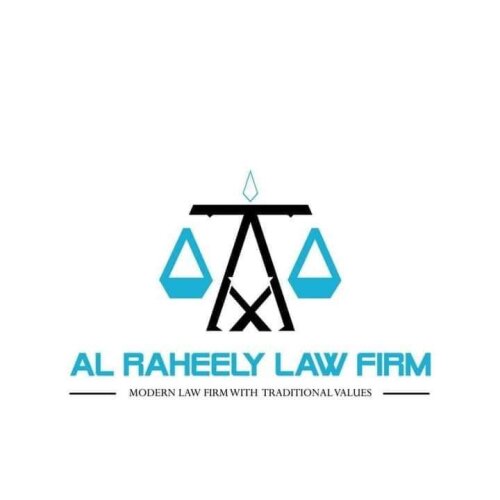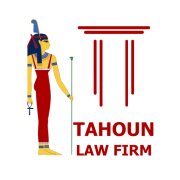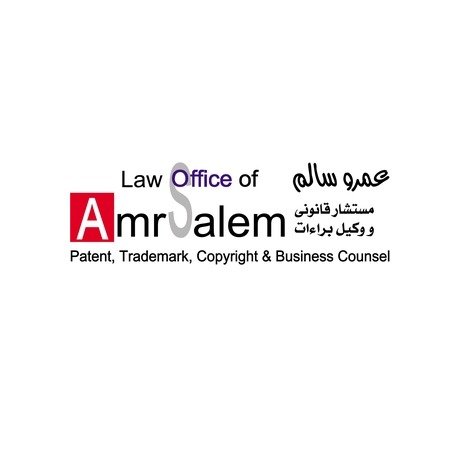Best Energy Regulatory Law Lawyers in Cairo
Share your needs with us, get contacted by law firms.
Free. Takes 2 min.
List of the best lawyers in Cairo, Egypt
About Energy Regulatory Law in Cairo, Egypt
Energy Regulatory Law in Cairo, Egypt, governs the production, distribution, and consumption of energy resources such as electricity, natural gas, petroleum, and renewable energy. This field of law helps to ensure that the energy sector operates efficiently, safely, and in compliance with national regulations and international standards. In Egypt, energy regulation is a priority due to the country's expanding population, growing industrial sector, and efforts to diversify energy sources to include renewables. The regulatory framework is evolving to promote investment, maintain fair competition, protect consumers, and support sustainable development.
Why You May Need a Lawyer
Navigating the complex energy regulatory environment in Cairo can be challenging. You may need the assistance of a specialized lawyer in situations such as:
- Complying with licensing and permitting requirements for energy projects
- Negotiating energy supply contracts or power purchase agreements
- Understanding regulatory changes impacting existing or planned energy ventures
- Resolving disputes with regulatory authorities, suppliers, or partners
- Responding to government inspections or enforcement actions
- Advising on environmental obligations related to energy production or use
- Guidance on renewable energy project development and investment
- Addressing issues related to tariffs, subsidies, and market competition
- Representation in administrative or judicial proceedings regarding regulatory compliance
Local Laws Overview
Egypt’s energy sector is regulated by several key legislations and authorities. For electricity, Law No. 87 of 2015 regulates the electricity market, introducing measures for private sector participation and establishing the Egyptian Electric Utility and Consumer Protection Regulatory Agency (EgyptERA). The natural gas sector is governed by the Gas Market Law No. 196 of 2017, which aims to liberalize the natural gas market and created the Gas Regulatory Authority (GASREG). Petroleum activities are mostly regulated by concession agreements under the Ministry of Petroleum and Mineral Resources.
There is strong governmental support for renewable energy, spearheaded by the New and Renewable Energy Authority (NREA), and the Renewable Energy Law No. 203 of 2014 encourages private investment in solar and wind projects. Environmental considerations are also addressed by the Environmental Law No. 4 of 1994, which requires energy projects to complete environmental impact assessments (EIA).
Key aspects include:
- Licensing frameworks for electricity and gas projects
- Tariff systems and mechanisms for price regulation
- Liberalization and unbundling of electricity and gas markets
- Promotion of renewable energy investments and Feed-in Tariff programs
- Environmental compliance for energy facilities
- Foreign investment and local content requirements
Frequently Asked Questions
What authorities regulate the energy sector in Egypt?
The energy sector in Egypt is regulated mainly by the Ministry of Electricity and Renewable Energy, Ministry of Petroleum and Mineral Resources, EgyptERA for electricity, GASREG for gas markets, and NREA for renewables.
Do I need a license to operate an energy business in Cairo?
Yes. Electricity and gas producers, distributors, and suppliers must obtain licenses from the relevant regulatory authority before beginning operations.
How are energy tariffs set in Egypt?
Tariffs are set by the regulatory authorities taking into account cost-recovery, consumer protection, and government energy policies. There are periodic reviews and adjustments.
Are there incentives for renewable energy projects?
Yes. The government offers incentives including Feed-in Tariff schemes, customs exemptions, and other support mechanisms to encourage investment in solar and wind energy.
Can foreign companies invest in the Egyptian energy sector?
Foreign companies can invest in Egypt’s energy sector, subject to licensing, regulatory approvals, and certain local content requirements depending on the project.
What steps are involved in developing a renewable energy project?
Key steps include identifying a site, conducting environmental impact assessment, securing land rights, applying for necessary permits and licenses, negotiating off-take agreements, and arranging project financing.
What environmental regulations affect energy projects?
Energy projects must comply with Environmental Law No. 4 of 1994, which requires an environmental impact assessment and ongoing monitoring to minimize pollution and environmental harm.
How are disputes in the energy sector resolved?
Disputes may be resolved through negotiation, regulatory complaint procedures, arbitration clauses in contracts, or litigation before Egyptian administrative or civil courts.
How can I challenge a regulatory decision made by an energy authority?
Challenging a regulatory decision typically involves submitting a formal complaint or appeal to the issuing authority, and if unresolved, seeking judicial review before the State Council Courts.
What laws apply to energy joint ventures or partnerships?
Joint ventures or partnerships in the energy sector are governed by Egyptian Commercial Code and Civil Code, relevant energy legislation, and specific terms agreed in the joint venture agreement.
Additional Resources
For more information or assistance with energy regulatory matters in Cairo, you may contact:
- Egyptian Electric Utility and Consumer Protection Regulatory Agency (EgyptERA)
- Gas Regulatory Authority (GASREG)
- Ministry of Electricity and Renewable Energy
- Ministry of Petroleum and Mineral Resources
- New and Renewable Energy Authority (NREA)
- Egyptian Environmental Affairs Agency (EEAA)
- Egyptian General Petroleum Corporation (EGPC) for petroleum sector matters
- Federation of Egyptian Industries - Energy Committee
- Local Chambers of Commerce for business-specific advice
- Reputable law firms specializing in energy and infrastructure law in Egypt
Next Steps
If you require legal advice or representation in energy regulatory matters in Cairo, Egypt, consider the following steps:
- Identify your specific legal issue or question regarding energy regulation
- Gather relevant documents such as contracts, licenses, and correspondences with authorities
- Research and contact a qualified lawyer or legal firm with expertise in energy law
- Arrange a consultation to discuss your needs and the best way forward
- Stay informed about regulatory changes and industry developments affecting your interests
- Maintain good records and document all communications with regulatory bodies
Taking prompt action and seeking specialized legal help ensures your energy projects or business remain compliant and protected under Egyptian law.
Lawzana helps you find the best lawyers and law firms in Cairo through a curated and pre-screened list of qualified legal professionals. Our platform offers rankings and detailed profiles of attorneys and law firms, allowing you to compare based on practice areas, including Energy Regulatory Law, experience, and client feedback.
Each profile includes a description of the firm's areas of practice, client reviews, team members and partners, year of establishment, spoken languages, office locations, contact information, social media presence, and any published articles or resources. Most firms on our platform speak English and are experienced in both local and international legal matters.
Get a quote from top-rated law firms in Cairo, Egypt — quickly, securely, and without unnecessary hassle.
Disclaimer:
The information provided on this page is for general informational purposes only and does not constitute legal advice. While we strive to ensure the accuracy and relevance of the content, legal information may change over time, and interpretations of the law can vary. You should always consult with a qualified legal professional for advice specific to your situation.
We disclaim all liability for actions taken or not taken based on the content of this page. If you believe any information is incorrect or outdated, please contact us, and we will review and update it where appropriate.

















